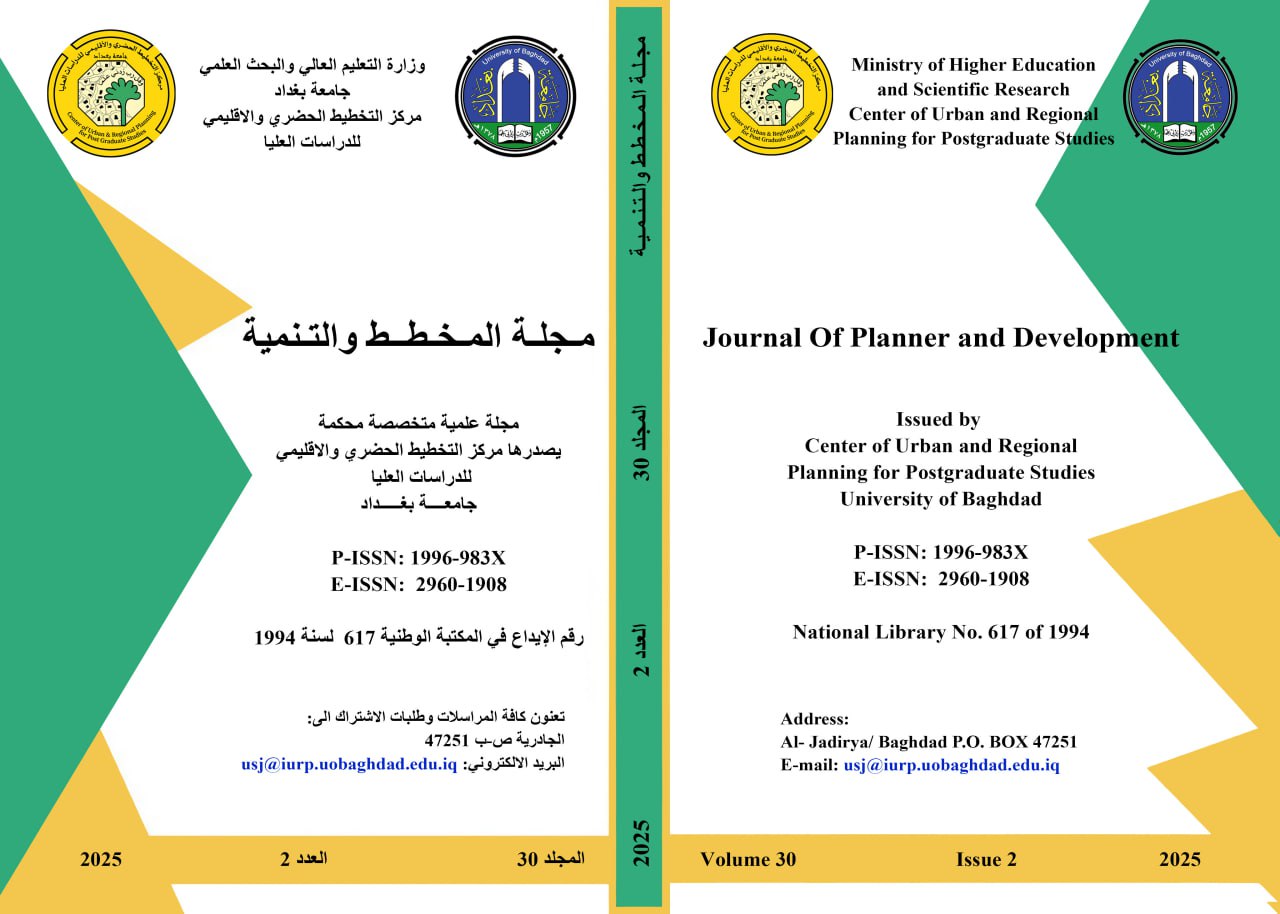Housing deprivation: A Comparative Analytical Study
Keywords:
housing deprivation, subjective indicators, objective indicators, Likert scale, Mann-Whitney test.Abstract
Housing deprivation is an important issue that directly affects human well-being and quality of life. Access to adequate housing is a basic necessity, as recognized by many international organizations such as the United Nations, the World Health Organization, and the Universal Declaration of Human Rights. Despite this, many families still struggle with inadequate housing conditions, which contributes to widening social and economic disparities.
Research Problem: The study addresses the unclear understanding of the causes and factors of housing deprivation.
Research Objective: This research aims to assess the levels of housing deprivation and identify the main social, economic, and urban factors that contribute to this issue.
To achieve this goal, the study focuses on two neighborhoods in Baghdad: Al-Shu ’la (Neighborhood 454) and Al-Allam (Neighborhood 837).
The research is based on the hypothesis that different social, economic, and urban factors influence housing deprivation. These factors can be categorized into severe deprivation (such as the inability to own a home) and moderate deprivation (related to housing conditions and access to basic services).
A structured methodology was applied, including a survey-based approach with a questionnaire designed to assess objective and subjective indicators of housing deprivation. Data were analyzed using a Likert scale and Mann-Whitney test to compare levels of deprivation between the two neighborhoods.
Key findings:
-Severe deprivation: The study found that 54% of households in Al Shu ‘la and 44.8% in Al Allam lacked home ownership.
-Housing affordability: In Al Allam, rent constitutes 32% of average monthly income, while in Al Shu ‘la, it constitutes 27%.
-Housing price-to-income ratio: Housing costs in Al Allam City are 16.5 times the annual income, while in Al Shu ‘la it is 9.1 times.
-Moderate deprivation: In Al Allam: Key challenges include housing maintenance, healthcare, education, recreational services, and access to public transportation.
In Al Shu ‘la: The most pressing issues are construction conditions, privacy, overcrowding, waste management, and security concerns.
The research reached a set of conclusions and recommendations related to the research objective.



